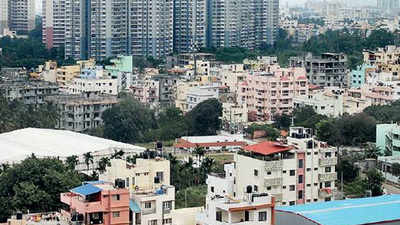The Hindu 14.02.2013
Method of property tax calculation challenged
The tax is based on notional market value.
The hike of 15 per cent in property tax for properties
within Mysore City Corporation (MCC) limits, which has been challenged
in court, has revived the debate on the way property tax is calculated
and the need for tax reforms.
The present system, the
capital value system, has been called “arbitrary” by its critics, as
rates are calculated based on the notional market value of property in
question.
The market value is assessed on the basis
of the guidance value, which is determined by revenue officials, whose
objective is to achieve the revenue targets set by the government.
The
MCC intends to collect Rs. 93.2 crore from property tax in the coming
financial year, while its target for this year is Rs. 77.54 crore.
H.V.S. Murthy, advocate and general secretary, Federation of Tax Payers’ Association, told
The Hindu
that this method was not based on scientific principles.
The
federation wanted the government to amend the Karnataka Municipal
Corporations Act, 1976, to delink property tax and market value,
because, Mr. Murthy said, the present system posed a danger to property
owners here.
The city was witnessing rapid growth and
speculation in real estate had led to artificial increase in the prices
and market value of properties. Most properties were being bought by
NRIs and people with disposable incomes from other cities, notably
Bangalore. This runaway escalation in property price had a direct impact
on guidance value, which was reflected in the market value of the
property.
If property tax was calculated on the basis
of this high market value, a majority of the people would find it
difficult to pay tax, said Mr. Murthy, who plans to file a writ petition
in court.
The solution, according to the federation,
is to opt for the unit area value system as in Bangalore, Kolkata and
other cities. As per this, property owners are taxed on the rate per
unit area fixed by the authorities, instead of the assumed market value,
which could be speculative. The increase in property tax comes into
effect on April 1, 2013.
Stakeholders have argued
that tax collection has not resulted in the corporation providing better
civic amenities, and hence, the property tax rate cannot be increased
simply because the law provides for it.

